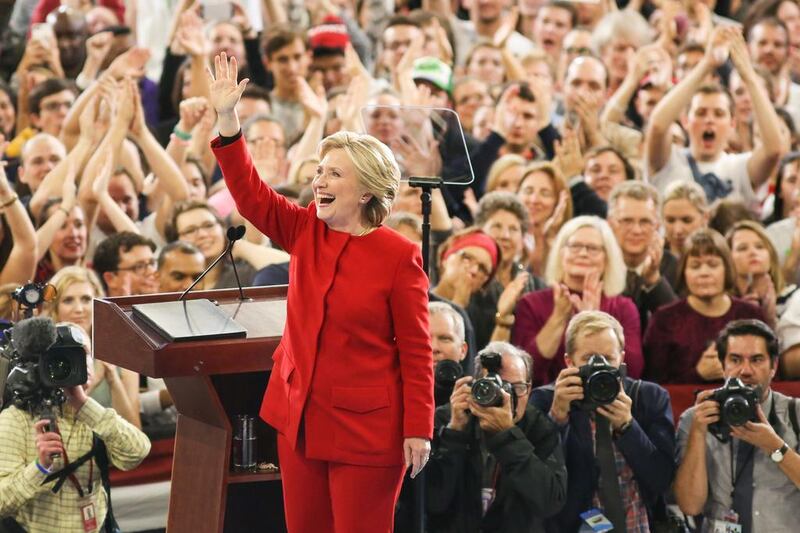As I write this column Americans are going to vote in the bitterest presidential election in living memory. When this paper hits the news stands, it will probably still be unclear which of the two least liked and least trusted candidates in modern American history has made it to the White House. “How did it come to this?” may well be the question going through the minds of many as they cast their ballots.
That will doubtless be the subject of many more columns, seminars and books to come. But for now, there are at least four lessons that need to be heeded if America is to return to being a model for democracy, rather than an example of how badly it can go wrong.
Firstly, it is clear that with Donald Trump as its candidate, the Republican Party has finally reaped what it has long sown. We may agree with President Obama’s remarks in a recent interview, that there is “a straight line from the announcement of Sarah Palin as the vice-presidential nominee to what we see today in Donald Trump, the emergence of the Freedom Caucus, the Tea Party, and the shift in the centre of gravity for the Republican Party”.
But there is more to it than that. Not only has the GOP establishment in practice ignored the wishes and the aspirations of its base, with candidates such as Mitt Romney switching to the middle ground after assiduously courting angry right-wingers during the primaries. They have also encouraged a type of false consciousness among their voters, who have bought into the rhetoric that big government is always the problem, and that lower taxes will make them wealthy – when in practice it is lower and middle-class Americans who most need the state, and candidates such as Mr Romney, not them, who benefit from having to pay a smaller proportion of their income to Uncle Sam.
This contradiction has finally been exposed by the rise of Mr Trump. True, he would decrease tax rates (and simplify them, which would be a bonus). But he is so much in favour of increased federal spending, intervention in free markets, and maintaining the social welfare programmes on which many of his poor white supporters depend, that the TV host Joe Scarborough has said: “He’s not a conservative. He’s not even a Republican. He’s a big-government liberal from Manhattan … who hijacked an entire party.”
Mr Trump’s authoritarian populism is not conventional conservatism by any measure. But it has appealed to the hordes of ordinary Republicans energised by depictions of Democrats as socialist elites who ignored white working and lower middle-class America – while they were led by rich elites who legislated and governed for the few, not the many.
The distance between GOP leaders and voters has to be thrashed out if it is to have a chance to return to being the party of Ronald Reagan – a man who, while nominally the party’s hero, would be considered today to be too left wing and given to compromise by the Tea Party wing that has called the shots for too long.
Secondly, bipartisanship must return to Congress. Obstructionist Republicans have shown such a lack of willingness to seek common ground that the GOP’s John Boehner, by historical standards a very conservative speaker of the house, was effectively forced out by hardliners who accused him of compromising too much – and this was a man under whose leadership Republicans caused a government shutdown in 2013.
In a sense, bipartisanship has returned in the fact that many leading Republicans are now so opposed to Mr Trump that they are going to vote for Mrs Clinton. If this strange alliance reminds a few elected representatives that there are certain beliefs on which people across the aisle could and should be able to agree without constantly trying to score political points, the lost art of governing may return to Congress.
Thirdly, trust has to be regained. And for that, transparency is key. Never mind Donald Trump’s unreleased tax returns. The mire of inappropriate connections between the Clinton Foundation, Bill and Hillary, and their close associates – such as Virginia’s governor Terry McAuliffe, who made a campaign donation to the wife of the deputy FBI director who was overseeing the inquiry into Mrs Clinton’s emails – shows why the label “Crooked Hillary” had resonance. Chinese walls must be erected and constant efforts made not just to be honest, but to build the perception of honesty in politics for voters to place their trust in a system that too many feel, as Mr Trump says, is “rigged”.
Fourthly, government institutions must work better.
The justice department, not the FBI, should have had control of the Clinton email investigation. But attorney general Loretta Lynch let that slip after she had a compromising meeting with Bill Clinton during the investigation.
FBI director James Comey has now overreached three times with his interventions about whether Mrs Clinton’s behaviour merited prosecution or not, and has undoubtedly affected the results of the elections – if not for the presidency, most certainly for the House and Senate. According to Senate Democratic leader Harry Reid, Mr Comey himself “may have broken the law”.
Americans like to refer to their country as “the exceptional nation”.
Much as that often irritates the rest of the world, the US has certainly produced an exceptional election in 2016 – but for all the wrong reasons. Let us hope the experience proves to be salutary. If not, democracy will be in need of a new poster-child, and it will be weaker as a force around the world. Hardly the result that the “world’s greatest democracy” could desire.
Sholto Byrnes is a senior fellow at the Institute of Strategic and International Studies, Malaysia





